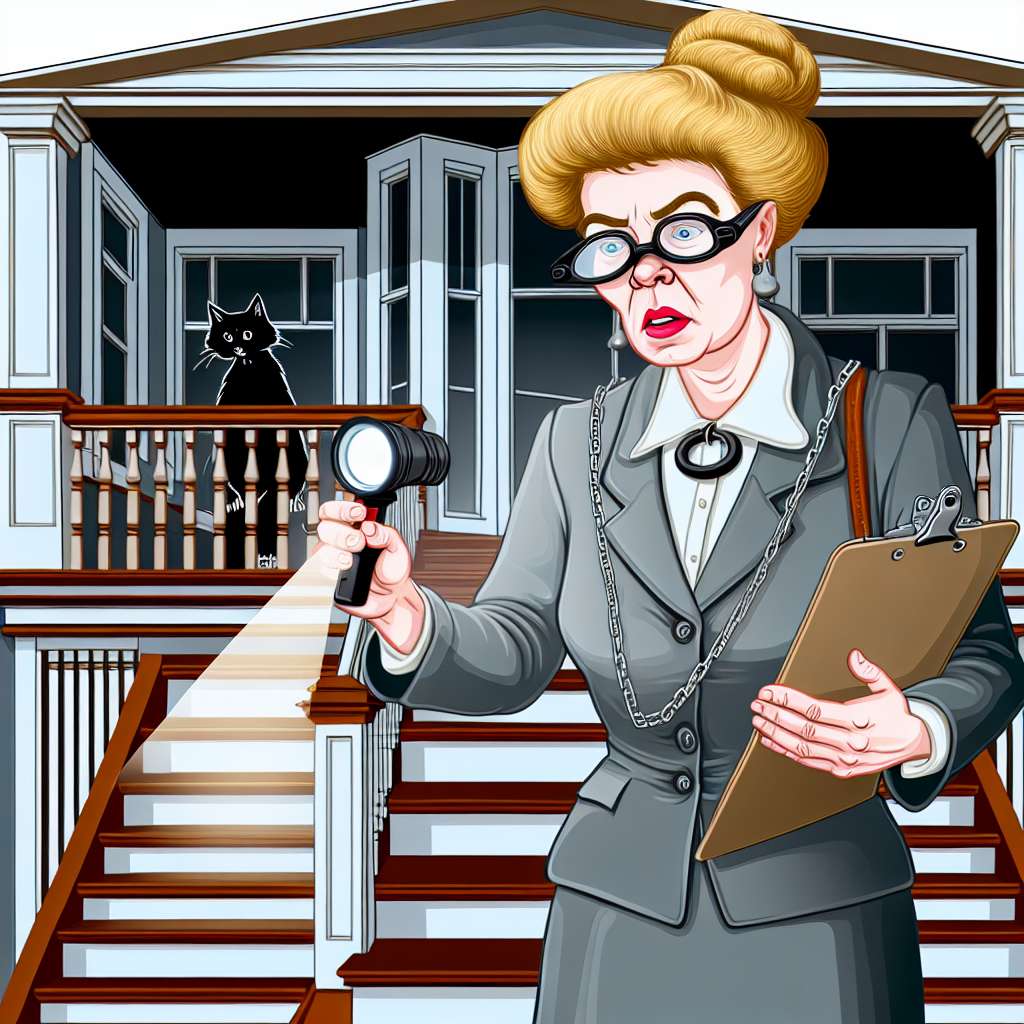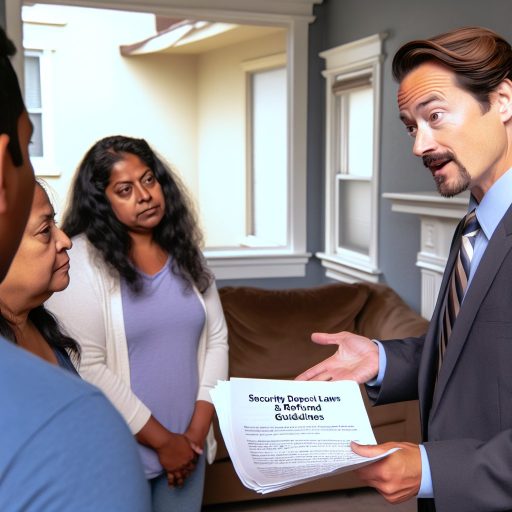Property Inspections for Rental Properties
Introduction to Property Inspections
Property inspections play a vital role in rental management.
They ensure the property remains in good condition.
Regular inspections help identify potential issues early.
Moreover, they enhance tenant satisfaction and retention.
Importance for Rental Properties
Conducting property inspections protects the landlord’s investment.
It also safeguards the well-being of tenants living in the property.
Additionally, inspections help maintain a good rental reputation.
Enhancing Property Value
Well-maintained properties tend to have higher market value.
Regular inspections contribute to maintaining this value over time.
Investors benefit from upgraded features and minimized repairs.
Compliance with Regulations
Inspections ensure compliance with local housing regulations.
Landlords can avoid potential fines and legal issues.
Moreover, understanding these regulations is crucial for successful management.
Creating a Maintenance Schedule
Inspections allow landlords to create an effective maintenance schedule.
This proactive approach prevents larger problems down the road.
It also helps in budgeting for necessary repairs.
Types of Property Inspections
Pre-Rental Inspections
Pre-rental inspections occur before a tenant moves in.
This inspection identifies any existing issues within the property.
Landlords can address these issues promptly.
Additionally, this process sets clear expectations for both parties.
Documenting the property’s condition is crucial.
It also protects landlords from future disputes with tenants.
Move-In Inspections
Move-in inspections take place on the day the tenant moves in.
This inspection ensures everything is in order.
Landlords and tenants should conduct this together.
Both parties need to agree on the property’s condition.
Documentation should include photographs and detailed notes.
This transparency fosters good communication.
Move-Out Inspections
Move-out inspections happen when a tenant leaves the property.
This inspection assesses any damages that occurred during tenancy.
Landlords can then determine any necessary deductions from the security deposit.
Similar to previous inspections, documentation is vital.
It helps to avoid disputes regarding security deposits.
Conducting a thorough move-out inspection is essential.
Property Inspections for Rental Properties
Key Areas to Inspect
Inspecting rental properties is essential for maintaining safety and comfort.
Focus on key areas during property inspections.
These areas include plumbing, electrical systems, and structural integrity.
Plumbing
Plumbing systems require thorough examination.
Check for leaks in pipes and fixtures.
Inspect water pressure to ensure proper functioning.
Examine drainage systems to prevent clogs.
Additionally, verify the condition of water heaters.
Electrical Systems
Electrical systems play a critical role in safety.
Inspect outlets and switches for functionality.
Check the wiring for any signs of wear.
Ensure circuit breakers operate correctly.
Consider hiring a licensed electrician for safety assessments.
Structural Integrity
Structural integrity is vital for building safety.
Inspect foundations for cracks and shifting.
Check walls and ceilings for signs of water damage.
Evaluate the condition of windows and doors.
Lastly, review the roof for any damage or leaks.
Gain More Insights: How To Conduct Tenant Background Checks For Property Management Success
Common Issues Found During Inspections
Mold
Mold growth often develops in damp areas of rental properties.
This can lead to significant health issues for tenants.
It is crucial to identify mold early to prevent extensive damage.
Inspectors typically look for dark spots on walls and ceilings.
Additionally, they examine areas near plumbing and windows.
Proper ventilation is essential to prevent mold accumulation.
Landlords should address water leaks promptly to mitigate mold risks.
Pest Infestations
Pest issues can significantly affect the livability of rental properties.
Common pests include rodents, cockroaches, and termites.
Inspectors often check for droppings or signs of gnawing.
Regular pest control measures help maintain a pest-free environment.
Tenants should report any signs of infestation immediately.
Effective solutions require a combination of cleanliness and professionalism.
Water Damage
Water damage can compromise the integrity of a property.
It often results from plumbing failures or severe weather.
Inspectors assess ceilings, walls, and floors for water stains.
They also check appliances like dishwashers and washing machines.
Repairing water damage promptly can save significant costs later.
Landlords should ensure proper drainage to minimize risks.
Ultimately, regular inspections help catch problems early.
Delve into the Subject: How to Create a Maintenance Schedule for Rental Properties
Choosing the Right Inspector
Qualifications and Experience
Finding the right inspector is crucial for rental properties.
Look for individuals with relevant qualifications and certifications.
Experience plays a significant role in effective property inspections.
Inspectors should have a solid background in real estate or construction.
Consider those who hold certifications like the National Association of Certified Home Inspectors.
Additionally, a membership in professional organizations indicates dedication.
Next, inquire about their inspection experience with rental properties.
They should be familiar with specific regulations and local codes.
Check whether they have done inspections in similar properties.
Ask for references from past clients to confirm their reliability.
A good inspector communicates effectively and answers questions transparently.
Moreover, they should provide a detailed report on the property condition.
Finally, always ensure your chosen inspector is fully insured.
Learn More: Red Flags To Watch For During Tenant Screening In Real Estate

Preparing for an Inspection: Tips for Landlords and Tenants
Understand the Purpose of Inspections
Inspections help ensure safety and compliance with regulations.
They also provide an opportunity to address maintenance issues.
Everyone benefits from a well-maintained rental property.
Communicate Effectively
Landlords should notify tenants well in advance of inspections.
Providing at least 24 hours’ notice is typically required.
Clear communication fosters a respectful landlord-tenant relationship.
Prepare the Property for Inspection
Landlords must ensure the property is clean and accessible.
Check that all utilities are functioning correctly.
Inspectors appreciate when areas are free of clutter.
For Landlords
- Fix any visible maintenance issues ahead of time.
- Make sure safety equipment is properly installed.
- Check that all entry points are secured and accessible.
For Tenants
- Make sure to tidy up living spaces.
- Notify landlords of any repair needs before the inspection.
- Provide access to any locked areas, if necessary.
Know What to Expect During the Inspection
Inspectors will evaluate both cosmetic and functional aspects of the property.
Their focus includes safety, cleanliness, and maintenance condition.
Each room will be examined, including common areas.
After the Inspection
Landlords should provide feedback and repair requests to tenants.
Both parties should discuss any issues discovered during the inspection.
Timely communication helps maintain a good relationship moving forward.
Gain More Insights: Balancing Tenant Privacy And Thorough Screening In Property Management
Legal Considerations
Tenant Rights
Tenants have the right to a safe and habitable environment.
This includes adequate plumbing, heating, and electrical systems.
Additionally, tenants can expect prompt repairs for maintenance issues.
Landlords must provide notice before entering a tenant’s dwelling.
This ensures tenants are aware of any inspections or repairs needed.
Moreover, tenants may request inspection reports for transparency.
Understanding these rights can empower tenants during inspections.
Local Regulations
Each locality may have its own laws regarding property inspections.
Landlords must familiarize themselves with these regulations.
For example, some areas may require annual inspections.
Other locales might have specific guidelines on notice periods.
Compliance with local regulations helps prevent legal disputes.
Municipal building codes also play a crucial role in rental properties.
These codes ensure that properties meet safety and health standards.
Inspection Procedures
Follow proper procedures during property inspections.
Landlords should schedule inspections at convenient times for tenants.
Clear communication helps build trust between landlords and tenants.
During the inspection, a checklist can help ensure thoroughness.
Documenting issues with photos can provide clarity for future actions.
After inspections, landlords should follow up with necessary repairs.
This practice shows commitment to maintaining rental properties.
Post-Inspection Actions: Handling Repairs and Communication with Tenants
Identifying Necessary Repairs
After the inspection, review the report thoroughly.
Highlight areas requiring immediate attention.
Prioritize repairs based on severity and tenant safety.
Consult professionals for complex issues.
Gather multiple quotes before making decisions.
Communicating with Tenants
Open communication is vital after an inspection.
Notify tenants about any needed repairs as soon as possible.
Provide clear timelines for when repairs will occur.
Encourage tenants to express their concerns or needs.
Maintain a positive tone to foster good relations.
Scheduling Repairs
Coordinate with repair professionals promptly.
Schedule visits at times convenient for tenants.
Confirm appointments and remind tenants ahead of time.
Ensure all repairs are conducted to a high standard.
Documenting Repairs
Keep records of all repairs undertaken.
Document before-and-after photos for future reference.
Share repair updates with tenants to keep them informed.
Maintain transparent communication throughout the process.
Follow-Up After Repairs
After repairs, check in with tenants for satisfaction.
Ask for feedback on the repair quality and process.
Address any remaining issues promptly.
This shows tenants that their satisfaction matters.




